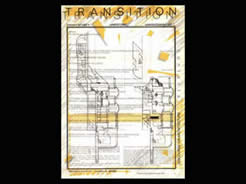Writing Across the Curriculum (WAC):

Resources for Using Writing in Your Courses
For the past two years, our March "Tea and Topics" have focused on "Writing Across the Curriculum," a term for a practice and philosophy that values writing as a tool

for thinking and learning, one which should be developed across disciplines throughout a student's education. This year, Writing Program Coordinator Siskanna Naynaha and former Writing Program Coordinator Kate Sullivan began our discussion. Here's their handout with useful links and guiding questions:
Tea and Topics Handout 2012: Using Writing in Your Classes
Lane's Writing Program Blog Metaphrasis has lots of useful assignments and ideas for embedding writing in your own curriculum.
Below are links to resources for you to try out in your own classrooms. Some are sophisticated, some very simple and straightforward. Writing in the disciplines can be time-consuming, and so assignments are designed with this in mind.
- Dimensions of Disciplinary Understanding
- T-R-A-C-E Prompt Handout to Guide Students' Reading and Analysis
- Muddiest Point, Key Concept, Burning Question
- How to Avoid the Paper Trap: Managing the Paper Load
- Microthemes from U of Kansas Writing Center
-
 Research Communities Survey (From Kate Sullivan)
Research Communities Survey (From Kate Sullivan) - Paired Guided Reading and Practice with Summarizing
- Summarizing Interviews with Famous People
- Power Thinking (Notetaking strategy)
- Unusual Writing Assignments
- Integrating Communication Skills into Your Classes
- Service Learning for Science and Engineering Students
- Key Concept Synthesis
- Headings to Questions Guide
- Concept Web
- REAP: "Read, Encode, Annotate and Ponder"
- Writing Business Reports
- Writing Lab Reports
- Some Sample Assignments that Include Information Literacy
- Tea and Topics Handout 2011: Definitions Questions for Reflection

In his article, "Redefining College Readiness," David Conley lays out four "facets of college readiness." Writing across the curriculum can positively impact two of them in particular: student understanding of key concepts, structures and assumptions in the disciplines, and metacognition.
Picture credits L-R: http://bit.ly/yJg7Ox ; http://bit.ly/xWhdIQ ; http://bit.ly/yL0YNN
